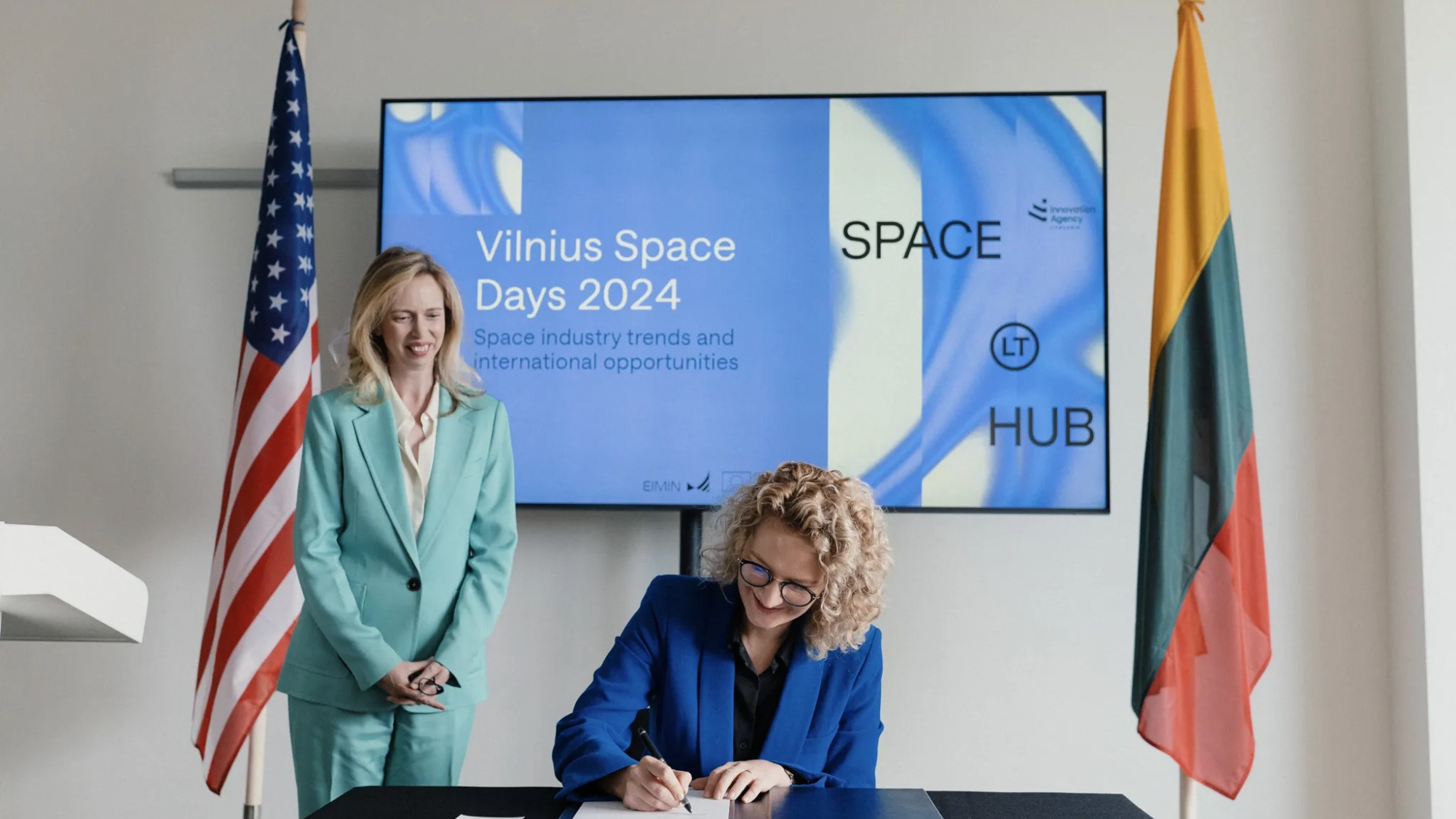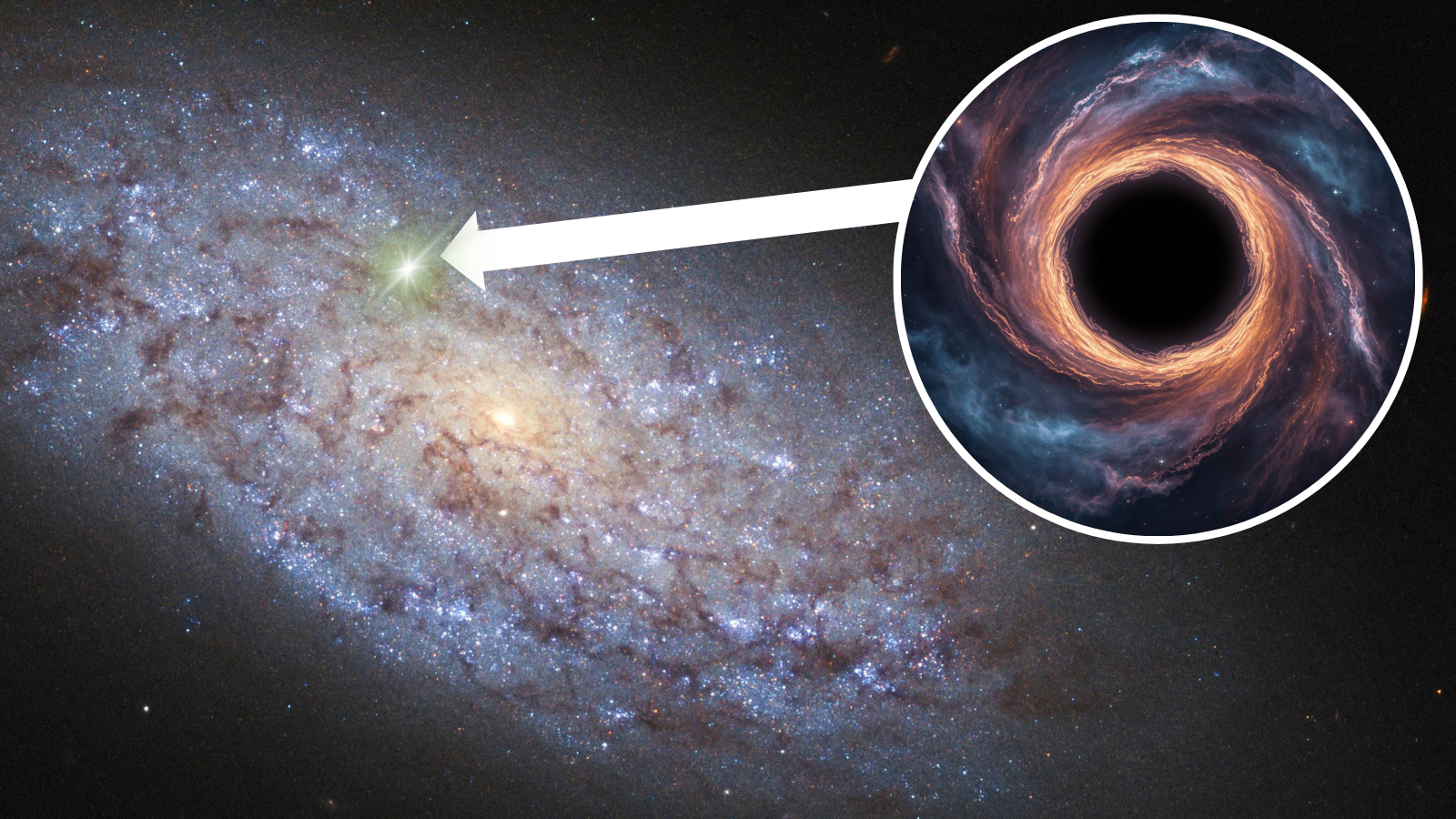Lithuania becomes 40th nation to sign Artemis Accords for moon exploration

Breaking space news, the latest updates on rocket launches, skywatching events and more!
You are now subscribed
Your newsletter sign-up was successful
Want to add more newsletters?

Delivered daily
Daily Newsletter
Breaking space news, the latest updates on rocket launches, skywatching events and more!

Once a month
Watch This Space
Sign up to our monthly entertainment newsletter to keep up with all our coverage of the latest sci-fi and space movies, tv shows, games and books.

Once a week
Night Sky This Week
Discover this week's must-see night sky events, moon phases, and stunning astrophotos. Sign up for our skywatching newsletter and explore the universe with us!

Twice a month
Strange New Words
Space.com's Sci-Fi Reader's Club. Read a sci-fi short story every month and join a virtual community of fellow science fiction fans!
There are now 40 nations in the United States' moon-exploration coalition.
Lithuania joined the club on Wednesday (May 15), signing NASA's Artemis Accords during a ceremony in Vilnius.
"Welcome to the Artemis Accords family, Lithuania," NASA Administrator Bill Nelson said in a statement.
"Our nations are strong partners — and now we expand this partnership to the cosmos," Nelson added. "In just four years, a remarkable 40 countries have signed the Artemis Accords. Together, as a global coalition, we will explore the stars openly, responsibly and in peace."
Related: Cooperation on the moon: Are the Artemis Accords enough?
As Nelson noted, the Artemis Accords lay out a framework for sustainable and responsible exploration of space destinations like the the moon.
NASA is eyeing Earth's nearest neighbor intently. The agency plans to establish a permanent human presence on and around the moon by the end of the decade via its Artemis program, which has launched one mission to date — Artemis 1, which sent an uncrewed Orion capsule to lunar orbit and back in late 2022.
Breaking space news, the latest updates on rocket launches, skywatching events and more!
Sustained crewed exploration will be a difficult and expensive undertaking, one that requires cooperation with industry, academia and international governments, NASA officials have stressed. And the agency is lining up many such partners, as the ever-growing tally of Artemis Accord signatories shows.
Those signatories include some major players in space exploration, such as France, Germany, India, Israel, Japan, South Korea, the United Kingdom and (of course) the United States.
China has serious moon ambitions as well; it plans to set up a crewed outpost called the International Lunar Research Station in the 2030s.
Like the U.S., China is enlisting international partners to aid in this effort. Russia is the chief partner; others include Azerbaijan, Belarus, Ethiopia, Kenya and Serbia.

Michael Wall is a Senior Space Writer with Space.com and joined the team in 2010. He primarily covers exoplanets, spaceflight and military space, but has been known to dabble in the space art beat. His book about the search for alien life, "Out There," was published on Nov. 13, 2018. Before becoming a science writer, Michael worked as a herpetologist and wildlife biologist. He has a Ph.D. in evolutionary biology from the University of Sydney, Australia, a bachelor's degree from the University of Arizona, and a graduate certificate in science writing from the University of California, Santa Cruz. To find out what his latest project is, you can follow Michael on Twitter.
